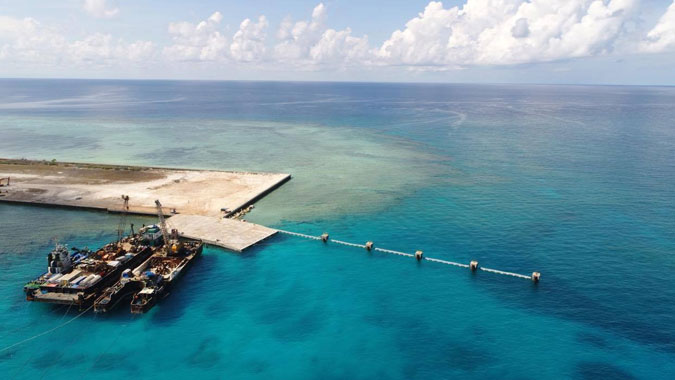By Marissa Mae M. Ramos, Researcher
THE PHILIPPINES slipped in this year’s list of outsourcing destinations by global strategic firm Tholons, Inc. as the economy is among those hardest hit by the coronavirus disease 2019 (COVID-19) pandemic.
The Philippines ranked sixth in the Tholons Global Innovation Index 2020 (formerly known as the Tholons Services Globalization Index), sliding a spot from fifth place in last year’s list of “Top 50 Digital Nations.”
The index ranks the most attractive outsourcing destinations based on indicators that are grouped into five factors: talent, skills and quality; business catalyst; cost and infrastructure; risk and quality of life; and digital and innovation.

According to Tholons, the index “evaluates, ranks, and provides location strategies to multinational corporations, countries, governments, multilateral agencies, analysts, and investors.”
India topped this year’s list, followed by the United States (2nd), Brazil (3rd), Canada (4th), and the United Kingdom (5th).
Rounding the top 10 were Russia (7th), Mexico (8th), Vietnam (9th), and Singapore (10th).
The index also features the top 100 “super cities” of which only two from the Philippines made the list: Manila (fourth place from last year’s second) and Cebu City (15th place from 12th). Davao City fell out of the rankings after holding the 95th spot last year.
The cities of Bangalore (India), Sao Paulo (Brazil), and Toronto (Canada) occupied the top three spots in the list, while Dublin (Ireland), Mumbai (India), Singapore, San Francisco (US), London (United Kingdom), and New York (US) make up the rest of the top 10.
Other cities in Southeast Asia that made the list include Hanoi and Ho Chi Minh City in Vietnam (49th and 52nd, respectively), Kuala Lumpur in Malaysia (31st), Jakarta in Indonesia (50th), and Bangkok in Thailand (82nd).
The report cited India and the Philippines as among “hardest hit” as their value proposition was “heavily based on low-cost talent, working out of offices offshore.”
In an e-mail, Pronove Tai International Property Consultants said the Philippines’ slip in this year’s rankings was due to several factors, which include issues on the cost of doing business, lack of support infrastructure, and the “risk on the quality of work and life balance.”
“Primarily, the COVID-19 pandemic and subsequent lockdowns have forced businesses to adapt work-from-home business models…. A work-from-home arrangement presents challenges for IT-BPM (information technology and business process management) employees due to lack of support infrastructure, particularly on internet speed connections,” Pronove Tai said.
“Another factor is the declining quality of life amid the COVID-19 pandemic. While most are working from home, IT-BPM workers are also facing difficulties reporting in their physical offices because of a lack of available public transport, a decline in salary, and threats of job layoffs,” it added.
The Philippines has been placed on lockdown since mid-March to contain the spread of the COVID-19 pandemic. Quarantine measures challenged key industries in the country with economic output falling by nine percent as of the first half of 2020 and the unemployment level reaching 17.7% in the April round of the government’s labor force survey.
The Department of Health reported 3,446 confirmed COVID-19 cases as of Monday, bringing the country’s total to 220,819. The death toll increased by 38 to 3,558.
“Now, more than ever, it is imperative for cities and countries to embrace digital. The effects of the pandemic have highlighted the strengths and weaknesses of nations in transitioning to the new business environment,” Philippine Software Industry Association (PSIA) President Jonathan D. de Luzuriaga was quoted in the Tholons report as saying.
Mr. De Luzuriaga, who is also a board trustee of the Information Technology and Business Process Association of the Philippines, added that the index has become an “essential framework” for the country to measure its readiness and capabilities in providing IT-BPM services.
For the property sector, the Philippine office market will likely depend on the IT-BPM sector as demand from Philippine Offshore Gaming Operators are declining, according to Pronove Tai.
The consultancy firm said the country’s readiness for a digital-based business ecosystem can “slightly impact the attractiveness” of the Philippines as an IT-BPM destination.
“However, it has a limited direct impact on the IT-BPM office demand because expansions are mostly based on the competitiveness of the workforce, supply of office space, and tax perks,” it said.


